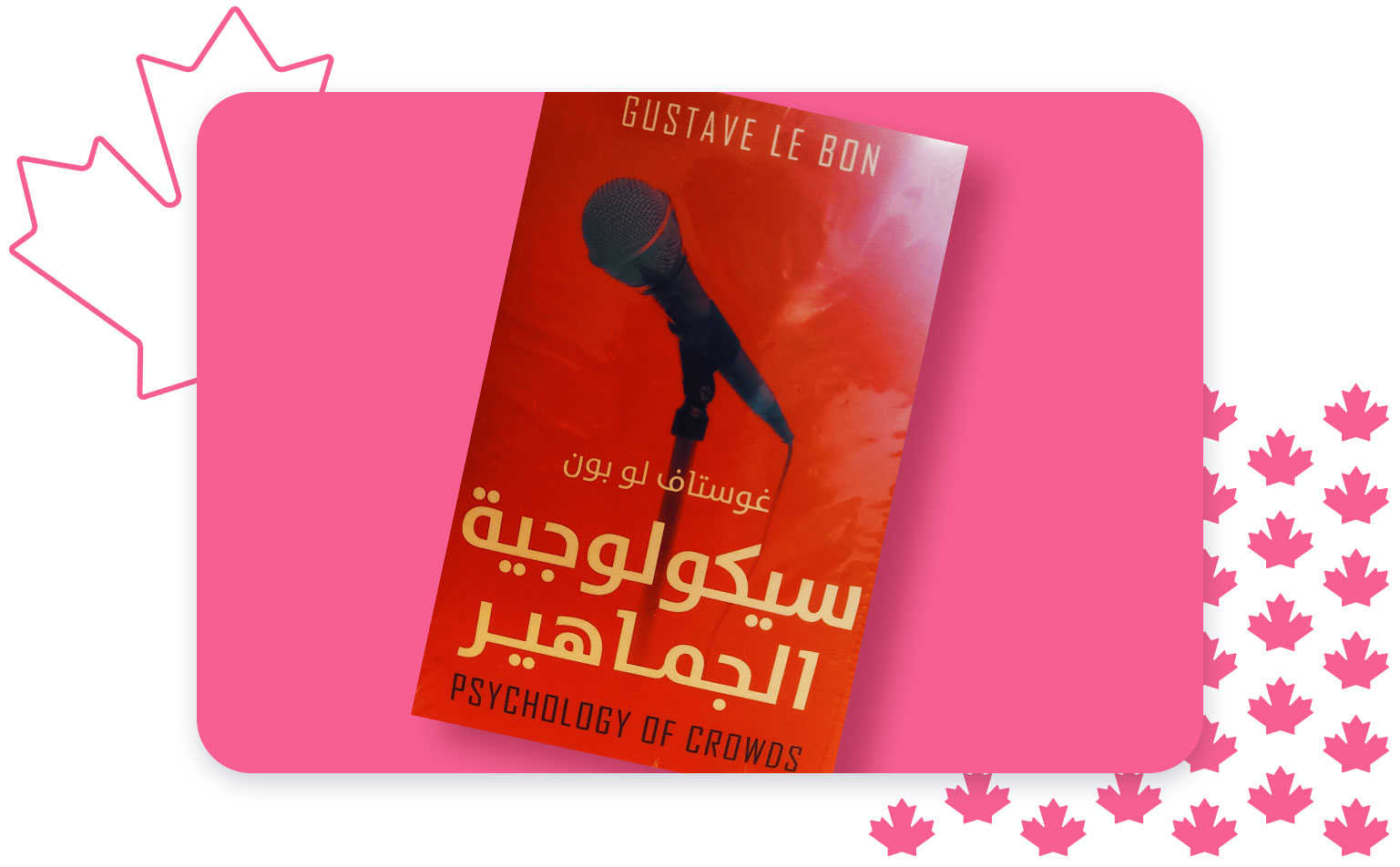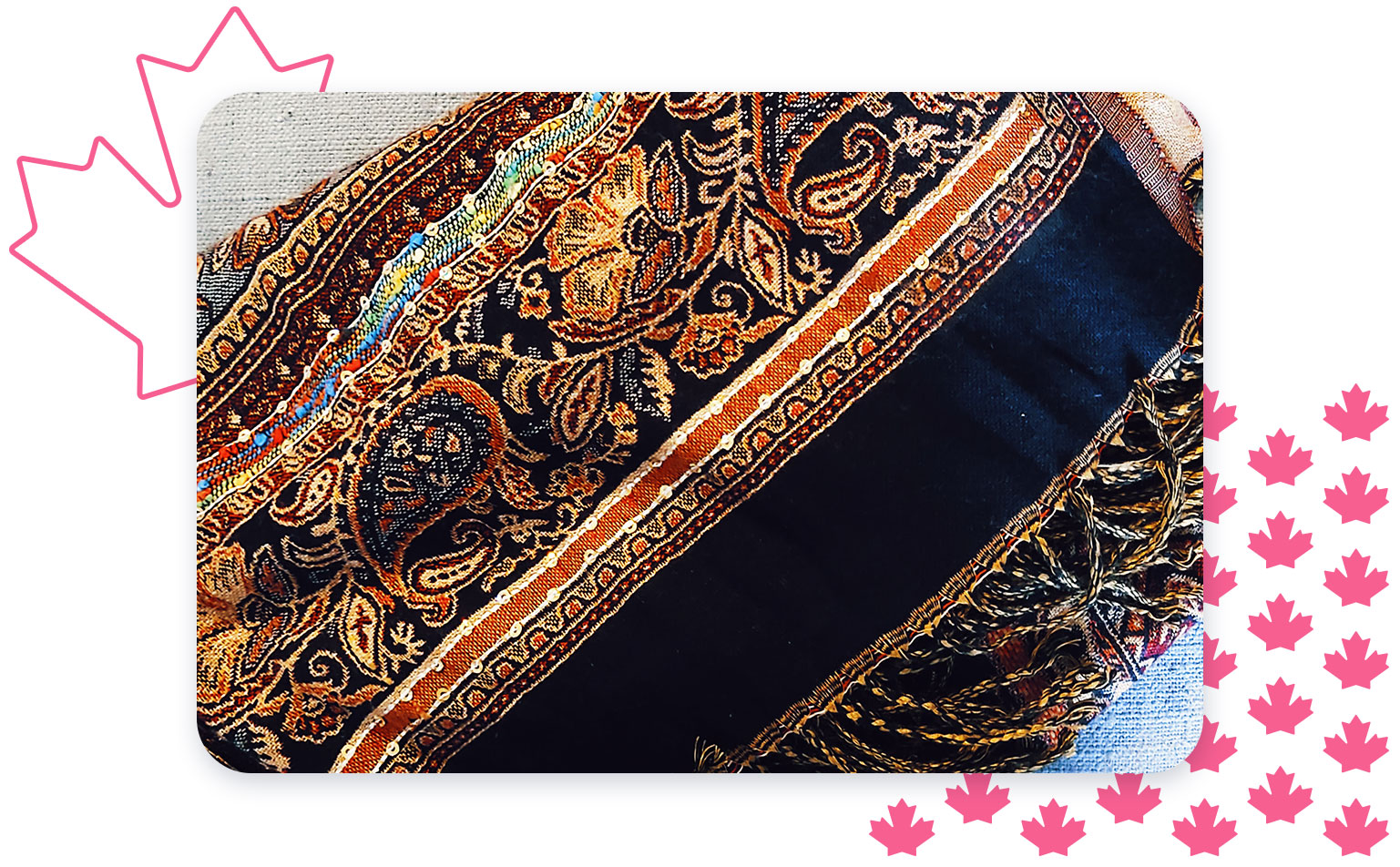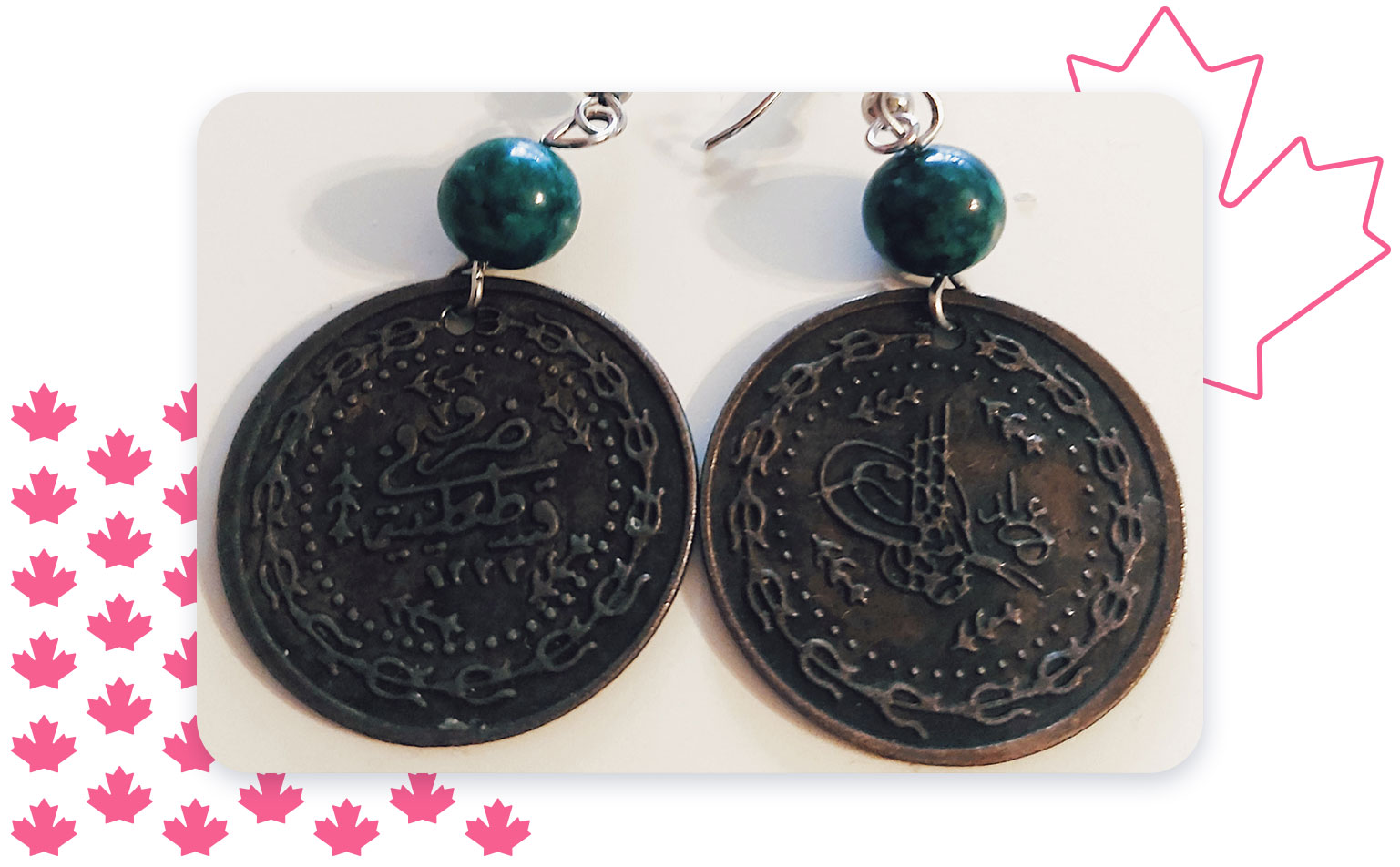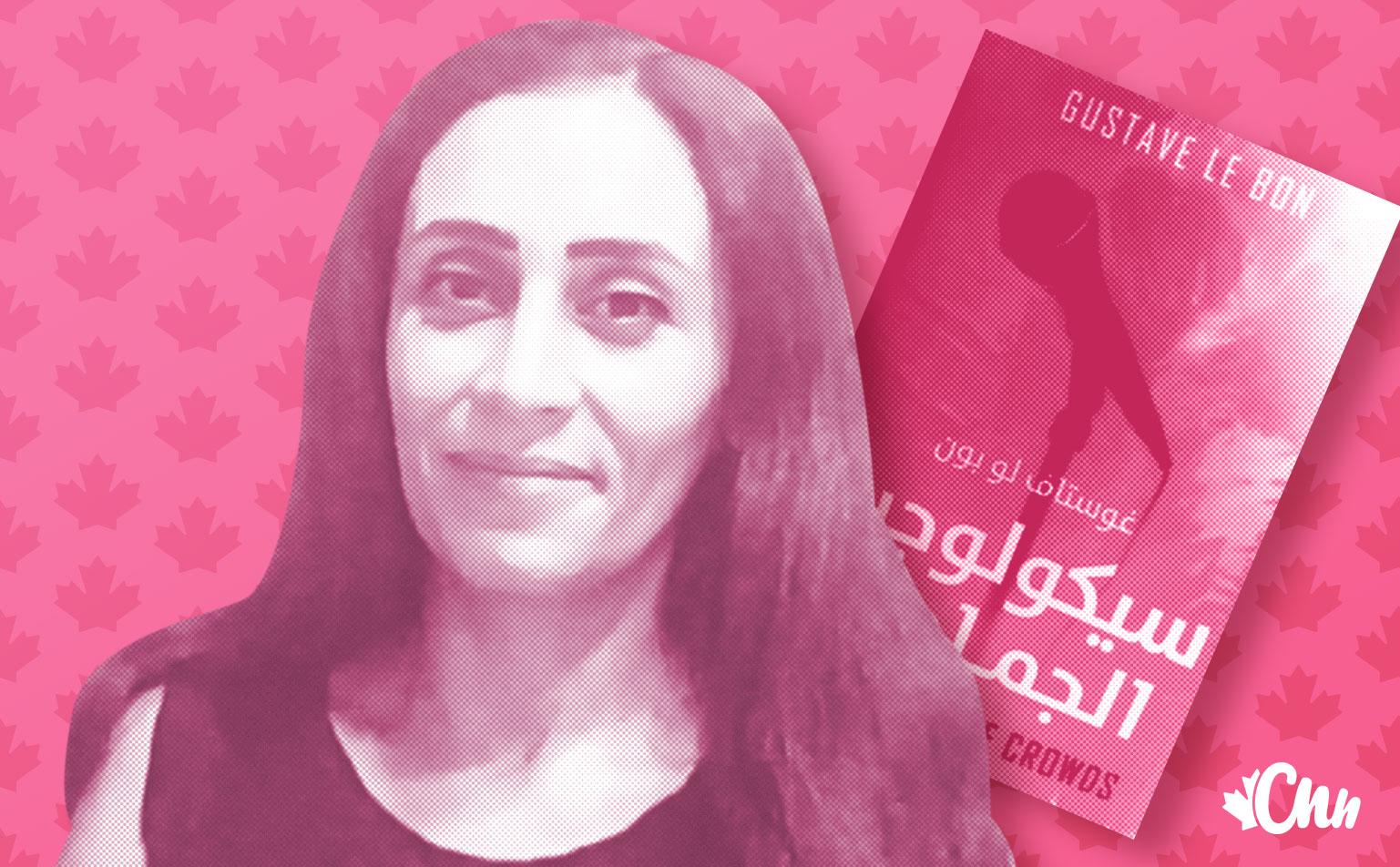These stories are from interviews that explore the narratives and journeys of Canadian newcomers in our current times.
Shorouk Elzayat arrived in Canada in February 2019 with her husband and children. She brings a wealth of experience and knowledge to Canada from working in different universities worldwide and is now a professor at Centennial College in Scarborough, Ontario.
Growing up in Egypt, Shorouk found her place in education at a young age, focusing her learning on political science, human rights and popular movements. Her academic work has taken her to China, Hong Kong, Lebanon and the United States.
I had briefly connected with Shorouk during a virtual talk at Centennial College’s International Development Week. When I had the opportunity to reconnect with her over zoom to learn more about her journey, she had completed her studies with the International Development program and recently joined the college as a professor.
Origin Story
Shorouk, tell me a bit about yourself?
I’m thirty-seven years old, arrived here about two and a half years ago and still navigating life through Canada. Before coming here, I worked as a university professor and have been in five to six different universities worldwide.
I am originally from Egypt, where I studied economics, political science and public administration. I started to see that I was more interested in knowing about the political systems, how people think and how you can set policies to help the people live better. I went overseas for my master’s and Ph.D., which focused on comparative politics and covered different themes from governments and popular movements.
What was life like growing up in Egypt?
I grew up in Ismailia, a city about forty-five minutes away from Egypt’s capital, Cairo. You might have heard about it with the recent events in the news. It is directly on the Suez Canal and near where the container ship had become stuck.
Growing up there, we would watch the ships all the time, moving back and forth. It was really fun, and believe it or not, we would cross the canal swimming when we were kids. So that was also a very interesting part of my memories from back then.
Ismailia was named after King Ismail, who used to rule Egypt during the Ottoman empire and had been the one to put up the city infrastructure. It’s is a relatively small city with quiet neighbourhoods and was also the place for the French occupation in Egypt. Everything over there is on the French style, the streets, houses, and structures.
My father was a university professor, and we lived in a compound just for the university professors. Everyone I grew up with this compound had been brought up at the same level with parents working at the university. Our outings and gathering, it was pretty much the same. The population is very small, and you knew everyone about your age, so it felt very warm.
So your connection with education came from your family?
The last position my father had was a University vice president. My mom was a librarian, and she moved to administration, working with the university. So when I was a kid, that’s the place I would go to when there was no daycare to take me; I would just stay at the university all the time.
I attended lectures, which became part of growing up and how I perceive life. When I think of my first experiences in the university, I have this in mind. It is my safe place.

Can you tell me about the significance of this book that you shared with me?
This book, “The Psychology of Crowds,” was the last research I was working on before coming to Canada. I got this book with the hopes that I could finish it over my two flights and write down my research papers while I’m here in Canada to start publishing it. It has been two years and a half, and the book is still sealed, as you can see. It’s significant to my story as I still want to continue to work in my field to continue researching and publishing.
Having this book here and seeing it reminds me of where I am right now and that this is a transitional phase. When I’m done with this transition phase, I will open this book and begin my research again.
So as long as this book is sealed, then I’m still in transition. Once I open the book and start writing down the research to publish, then I would say that I’m settled by then.
Were there any important lessons that your family taught you growing up?
I was brought up in a family that believes in women’s rights, and I believe that this is due to how my dad was brought up. My grandpa from my dad’s side passed away early on, and my dad had a big family with six sisters and one brother. He was the one who was taking responsibility for them, and based on his experiences; I believe he got this understanding about the importance of understanding women, empowering them, giving them the right to be equal.
I saw this when he allowed me to play soccer in the streets even though mostly rejected in our culture for girls. He believed that you should go and do it if you have the ability. He’s the one who pushed me to go and travel the world
I’m capable of doing anything. I’ve lived in different countries, cultures, and I’ve seen lots of challenges in my personal life and professional life. Through all of it, this is the motto that I had in mind, that I’m capable of doing anything that I want.
So I’m thankful for him because I believe this was the main reason for me being a little bit more liberal in mind and accepting anything that I see around the world. It made me more resilient.
Migration
What were the motivating factors that pushed you to leave Egypt?
The first time I decided to leave Egypt was in 2009, and I was working in human rights and not so happy with the status of human rights in Egypt. I tried to help a little bit but decided to stay with academia by contributing to papers and assisting people through charities.
With all the cultural, political, and economic changes, my main concern was the cultural changes. I started to feel that I’m a little bit alienated from society and no longer feeling like I belonged there anymore. The main reason is that the culture there was no longer the same.
As I mentioned, I grew up as the daughter of a university professor, and we were considered the middle class. We started to see that people and social structures are changing a lot, where you don’t belong here, and you cannot belong there. So this contradiction started to make me feel that maybe I should just try to live my life somewhere else.
After I had my kids, I decided to immigrate, and this is because of the culture. I was worried about the culture they would grow up in. To live in Egypt right now, you have to live in a bubble, and I wanted them to have a regular life and experience living with different people.
My husband and I decided that it’s better to stay somewhere else for a couple of years. Let the kids explore life to understand that the world is big and have tons of different experiences instead of just being in their comfort zone. I think that was the main driver for us.

Can you tell me more about the significance of this scarf you shared with me?
I got this scarf from my students in my last week in Egypt. My last lecture was at the end of January 2019, and I came here just 20 days after this lecture.
My students got this scarf for me as a way to say goodbye, and that’s why It’s so dear to me. It reminds me of my last step before coming here and what type of relations I left over there.
One of those students is teaching right now in the same department that I was teaching in, so I wanted to remind myself that this is the legacy that I would like to leave behind. Whether it be short-term or long-term, I want to keep the same type of relationships that will go beyond the professional life to see the personal aspects of one another and build relations that would last forever.
Were there any concerns you had with migrating to Canada?
I was first concerned about finding a job. Before arriving in Canada, my husband and I were relatively settled regarding our jobs. I was progressing very fast back home, and I could start my own work that would pay back very well. The decision we had to make in immigrating to Canada came in the middle of this.
So I had to ask if I should just leave everything and start all over again to come here with those uncertainties, especially around progressing and developing my career. We got lucky where I was able to get a job on my second month here in Canada. It was not in my field by any means, but I started learning something new.
Were there any support or resources that helped you transition to Canada?
One thing that helped me was the newcomer centre that I went to. I was lucky to get a support worker who gave us tips and tricks on finding things and tailoring my resume to a Canadian style. I started to prepare for interviews and attend different job fairs, where I was able to get my first job.
I later left the company that I was working for because I wanted to return to my field. I applied to work at the same settlement organization, and I got accepted to start working there as a settlement worker.
So if you could give any advice to Canadian newcomers, what would it be?
I used to tell my clients when I was working as a settlement worker. Never lose hope. It is challenging, but the experience made me more resilient and gave me this self-confidence. It took my self-confidence to the next level. If I could do it here, I could tell you right now; I can do it anywhere.
People have to knock on all the doors. Knock all the doors, don’t sit back and get demotivated easily. It’s tough, but you’re building your strengths, so take it as a personal challenge and build those strengths. There are plenty of chances here, but it requires a lot of work to access it.
Hopes & Aspirations
What are your hopes and aspirations for building a life here?
To have a stable and free life. I want to be able to be part of the community, and I want to create some change in the community.
After just one year of coming here, I met with a member of parliament. I was happy when I had this conversation, and I believe that everything and anything here is doable.
I was able to join the college and get a job in my field. So what I see now from this point on is progression. My hopes and aspirations are also to start something to help the community. I’m highly interested in women’s rights, especially in fighting violence against women with its different forms.
Do you have any thoughts on what it means to be Canadian?
I’m still developing this answer. As far as the have experiences I’ve had in these two and a half years, it would be about understanding the system and finding your way of fitting in.
If you could have this broader vision to understand the system and adapt to it, you will start to be a Canadian in one way or another.
It can apply to everything from working on your resume to the way you are respecting others and the cultural complexities that exist here.

What is the significance of these pair of earrings you shared with me?
I was given these as a gift by a Palestinian reporter who had a fascinating life. She was helping me with a peace and reconciliation project when I was in Lebanon, where we were documenting how people work on reconciliation and how people can live peacefully together. It was here that I got to see how lives can intersect together. We met for about two weeks of lives, but we are still in touch up until today.
They remind me about a particular part of my journey and some of my accomplishments back home. It reminds me about what I want to do with my life, how I can touch people’s lives and how I can leave this impact behind.
Before We Wrap Up…
What would you do if you were to win Canada’s Luckiest Newcomer contest grand prize of $20,000, presented by CIBC and the Canadian Newcomers Network?
Two things. The first I would be to help start a private business with my husband; because of the pandemic, he has been unable to find work up to this point, and we have attended training together about how to start our own business. The second would be for the violence against women project that I want to do. I’ve been working on it right now for the past two semesters, and hopefully, my next step would be to bring it to life and start helping the women from my culture. I can see that If we empower them, then it would be it will be rewarding for everyone.
So tell me, Shorouk, what’s next?
I want to teach political science here in Canada, especially with me coming from the Middle East and having this vast experience. I feel like I can do a lot. I also want to support the developing regions of the world as well, and maybe after I become a minister, I could start doing this!
You can count on my vote Shourok!
As I reflected on her story, I’m reminded that the colourful fabric of Canada is weaved together by multicultural threads of resilience, hard work and dreams. Stories like this remind me that Canada is stronger today because of Canadian newcomers who bring the wealth of their experiences, knowledge and diversity, making Canada a better place for all people.
This Canadian Newcomer Story is produced by The Canadian Newcomers Network and SNCD Media, created through a storytelling process by Sid Naidu.
Sid Naidu is an international development advocate & documentary photographer who uses visual arts and storytelling to create social impact. Follow Sid on Instagram or Twitter
*Opinions expressed are those of the author, and not necessarily those of Student Life Network or their partners.



